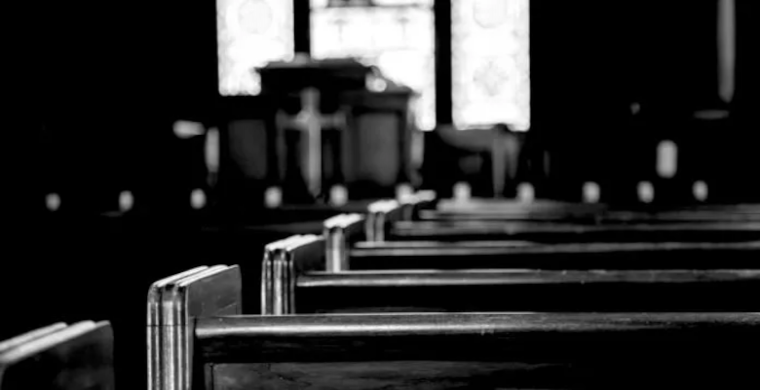A month to mourn for the irrelevant C of E
By Tom Lennie
THE CONSERVATIVE WOMAN
March 3, 2024
THERE'S little doubt that many within the Church of England hierarchy will be glad to see the back of February. It's been a disastrous month for them in terms of public relations.
It started with criticism of the Church's role in immigrants' supposed 'conversion' to Christianity. It became clear that the C of E plays a highly significant role in the approvals process in such claims (though this is now likely to become considerably restricted). The Church was blasted from all sides -- by MPs of every political persuasion, by the media and by ordinary folk, furious that church officials could be so crass and naive. As a result of the fallout, the Church is looking at reviewing its guidelines.
Around the same time came news that Canterbury Cathedral was hosting two alcohol-fuelled silent discos in an attempt to reach out to younger people and to raise 'large sums' to keep the Cathedral running. Though the events sparked outrage, and thousands protested about the 'rave in the nave', it was announced that another half-dozen cathedrals have signed up to host silent discos in their own sacred arenas.
This wasn't Canterbury's only novel means of raising cash in a setting where donations and offerings are plummeting. Archbishop Justin Welby was drawn into a row after it emerged that promotional material for a £950-a-head Easter Retreat at the Cathedral offered worshippers a chance 'to go behind the scenes' to meet staff, including the Archbishop and the Dean, Dr David Monteith. Critics said it offers 'cash for VIP access' during Holy Week when Christians are entering a period of reflection.
In the middle of the month a Telegraph study revealed that C of E attendance was dropping off at a record rate. Sunday church attendance is just 80 per cent of what it was five years ago, and has more than halved since 1987. Dozens of parishes are closing or merging each year, with 641 churches (4 per cent) having been closed since 2000.
A string of further negative headlines was to hit the national Church before February came to a close. A damning report published by the Independent Inquiry into Child Sexual Abuse concluded that the Church of England should be stripped of its power to investigate and punish sexual abusers because victims cannot trust it. There is 'inconsistent guidance, data collection, accountability, professional practice and scrutiny' in the Church's safeguarding, it said, and it 'falls below the standards of secular organisations'.
In his opening address to the Church's General Synod, Archbishop Welby said 'malign forces' within the C of E were doing the 'Devil's work' by regarding others within the Church as their enemies. Lambeth Palace, Welby admitted, is deluged by hate mail predominantly from 'within the Church', particularly in regard to staunch disagreement over same-sex marriage, which has caused deep division within church ranks.
Perhaps the real low point of the Synod was when members voted down an amendment to 'reaffirm the value of marriage, especially when loving, as providing the most stable and permanent environment for bringing up children'.
Criticism of the Church has not been confined to sources within the UK. It has been revealed that two official Ukrainian bodies protested at the Church of England briefing document prepared ahead of the Synod debate on the Russia-Ukraine war. The briefing document is said to be 'inappropriately even-handed', as if both sides in the conflict are caught up in a tragic muddle, and as if no particular religious body is more culpable than any other. The document is charged, among other things, with repeating 'pro-Russian propaganda narratives', and with misrepresenting 'the religious dimension of Russian aggression'. It was also regarded as rather odd that the only non-Anglican to speak at the debate was a Russian Orthodox priest.
The negative news stories continue, with revelations that hugely controversial Church of England guidance telling primary schools that children as young as five can be transgender was funded by the equally controversial LGBT charity Stonewall.
It's clear that things are not well for the Church of England when it feels forced to resort to employ imaginative and new-fangled but somewhat desperate methods of attracting young folk into its buildings -- be that in the form of helter-skelters, crazy golf courses or silent discos.
Will the Church ever face up to the reality that, for the main part, it has lost relevance with the British public, with its (all too often) dreary sermons, its insistence on conforming to woke and unbiblical social ethics (not least regarding gender identity and same-sex marriage), and its overtly left-leaning politics?
Will it ever return to the simplicity of preaching Jesus Christ, and the gospel truth that salvation is found in Him alone? It's in Christ that new life is found, and it's by discovering and living out that truth that hundreds of non-institutional churches (together with, thankfully, a few, biblically faithful Anglican ones) throughout the country are thriving.
The Church of England, meanwhile, for the most part, chooses to continue to tread the pathway of decline, lifelessness and irrelevance, which ultimately, appears to hurtle it ever closer in the direction of self-extinction.














